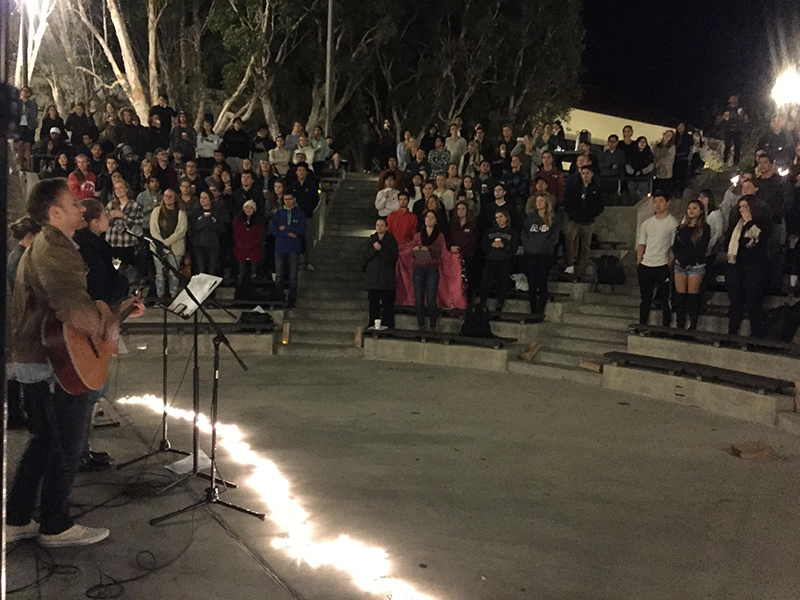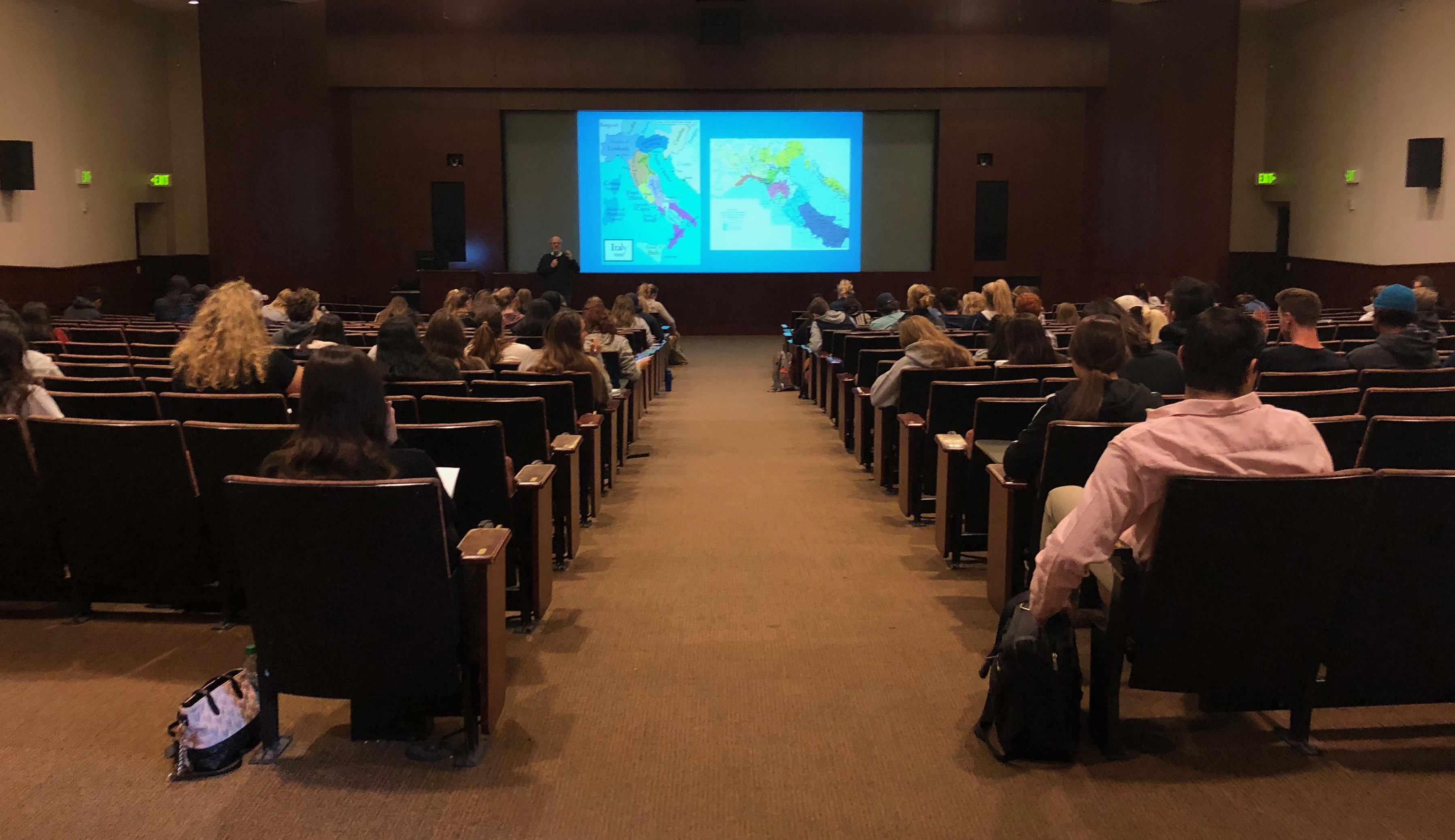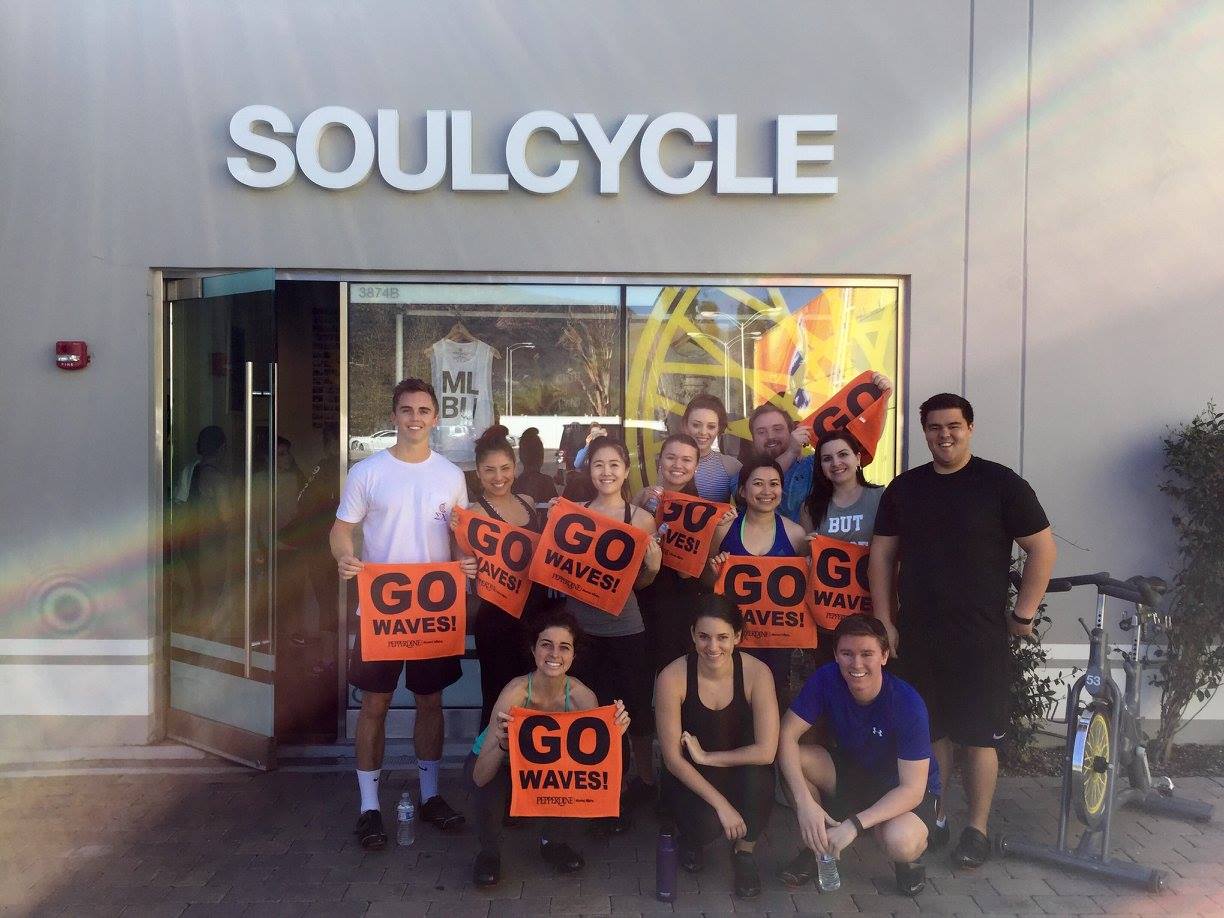
It’s not news to anyone that studying abroad is a huge part of student life at Pepperdine University.
However, what may be surprising for some students is that starting junior year back on campus can be just as difficult as trying to navigate the London tube.
“You know, it’s taken a lot longer, I think, than I thought,” said Professor of Communication Robert Ballard, who was visiting faculty for the 2014-2015 Shanghai Program. “Someone who’s gone abroad multiple times, another faculty member, said that for every month you’re gone, it takes about a month to get back.”
With approximately two-thirds of undergraduates studying abroad, the transition back is one many Pepperdine students face. A fall 2015 poll of 69 students showed that just over 20 percent felt completely prepared to return to Malibu, while close to 9 percent said they felt completely unprepared. More students reported feeling unprepared to come home than those who said they felt unprepared to go overseas.
When asked in interviews about their abroad experience and transition home, student responses only reinforced the results of this online poll.
“It’s really weird returning to campus after being gone for a year,” said Alexandria Tucker, a senior psychology major who studied abroad in Heidelberg for her sophomore year. “I feel like Pepperdine put more effort into preparing us for the journey abroad than coming back to campus.”
For Allison Diener, a junior accounting major who spent her sophomore year in London, the difference between the preparation for going abroad and returning to Malibu was black and white in comparison.
“I don’t think they did as good of a job with returning as they did with leaving,” Diener said. “Academic advising was very minimal and I felt alone in making the transition, as opposed to all the people that wanted to help when I was leaving for abroad.”
Students agree there is a lack of attention given to the transition back to Malibu, but the ways in which they feel out of place or unprepared vary, from the fear of more demanding upper-division classes to a general lack of understanding from their peers.
“For many of them, it’s like a second freshman year,” said Karl Kalinkewicz, the assistant director of Recruitment and Student Development for International Programs. “You adapt to a new environment and then you come back, and it feels very similar to when you came here for NSO as a freshman, but then there’s no people in orange shirts moving you in.”
Although re-entry has been an obstacle for students since International Programs opened its doors in 1963, staff today are taking steps to welcome students back to Malibu.
“What we’ve noticed is that in general, not just Pepperdine, but most international programs do not have a very well fleshed-out or well-thought out program for re-entry,” Kalinkewicz said. “One of the things I was challenged with in coming in here was to try to develop what our re-entry program would look like to bring students back to Malibu.”
There is no definitive cure for the post-abroad blues, but IP is providing students with resources to help with the slow adjustment to life back on campus, as well as the inevitable Swiss chocolate withdrawals.
“We are partnering with the Convocation Office and implementing a new program that’s called Landed,” Kalinkewicz said, “and it’s about unpacking your IP experience. There are a lot of questions that students are asking. They come back here and they haven’t quite found the answers yet, and … our Club Convo won’t give them all the answers, but we’re hoping that it provides them with the space and gives them a little bit of guidance so we start having the conversation.”
Although the Landed program — which consists of six Club Convocations, bookended by a kick-off and closing event — is new this year, Kalinkewicz said Landed has already seen participation from over 170 students.
Unpacking the abroad experience is a frustration that many students face. David Nguyen, a senior international studies management major who studied abroad in Lausanne his sophomore year, remembers preparing a 15-second summary of his experience in preparation for his return to Malibu.
“I distinctly remember being told, ‘No one’s going to care about your experience,’” Nguyen said.
For Zayi Reyes, a junior IMC major who spent her sophomore year in Shanghai, the hardest part was re-entering the “Mali-bubble.” Reyes said she struggled with coming back to a small campus after traveling and meeting new, more open-minded people in Shanghai.
Tanner Carrillo-Zazueta, a senior sports medicine major who studied abroad in Florence his sophomore year, found that the biggest part of the transition was realizing that the experience was over.
“The hardest part about returning to campus is honestly just getting back to real life and getting back into the swing of things,” Carrillo-Zazueta said. “You get so used to travelling every weekend, but when you return to campus it’s back to everyday life and the real pressures of passing classes, graduating and finding a job.”
Hitting the books and the job market post-grad seemed to be a common concern for students, including Cambria Lagana, a junior political science and sociology major who has studied abroad in Pepperdine’s Florence, Lausanne and Buenos Aires programs. Lagana said she struggles to re-focus her attention on academics and looking ahead to grad school possibilities.
Although many students deal with post-abroad blues, they aren’t the only ones who find it difficult to transition back to life on campus in sunny Malibu.
“Things were just big,” Ballard said. “Everything was new, everything was exciting and here you’re kind of back in the normal. Life just kind of moves on without you and you sort of figure out where to fit in.”
Although Ballard, along with his wife and three children, have lived abroad before, their experience last year as the faculty family really opened their eyes to the difficult transition students face after landing at LAX.
“A lot of things change and a lot of people don’t understand the experience you have. How do you take that life-changing experience and really fit it into a box?” Ballard said.
Although there are students and professors currently dealing with re-entry in Malibu, students overseas already anticipate this difficulty when their time comes to return to campus in just a few months.
“I think the biggest challenge will be trying to fit back into the Malibu culture,” said Kelsey Taylor, a sophomore public relations major currently studying abroad in Florence, Italy. “They have such a big push on abroad and preparing us to experience culture shock that they don’t really prepare us for coming back and getting used to a school where we don’t know anyone.”
Katrina Winnett, a sophomore intercultural ministry major currently studying abroad in Heidelberg, predicts that weekends in Malibu will be the hardest part.
“It will be strange to stay home instead of hopping on a train,” Winnett said.
Although Mark Barneche, assistant director of the Lausanne Program and a Heidelberg alumnus, has spent more time than most have abroad, he remembers the unexpected difficulty of the transition.
“Returning to something that was familiar, but foreign, induced far more culture stress in me than returning from Germany to the United States,” Barneche said. “I needed to know that it was going to take a considerable amount of time and patience to readjust to life on campus.”
In many cases, time is the only remedy for the post-abroad blues.
Hannah Wolverton completed this story in Dr. Christina Littlefield’s fall 2015 Jour 241 class.




